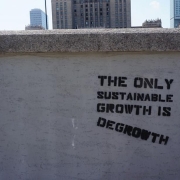Hooked on government support…
…from one dependency to another
You can’t have failed to notice the high profile fall of Kid’s Company over the last few months. It reminded me of some of the dangers that can lie in reliance on government contracts for the delivery of public services, which has been repeated as a mantra for the social enterprise sector for nearly 20 years. This of course is not the only issue for Kid’s Company, but one that I focus on here.
Many forget that, historically, social enterprise has its roots (along with the charity sector) in delivering where the conventional market has failed. However, unlike charity, it uses a business model that creates enough revenue to either:
- deliver very low profit margins to reinvest because the social value/impact is included in their business delivery model which would otherwise increase profits; or
- deliver high margins in one activity that supports the cross subsidy of another less profitable social activity, freeing the company to deliver its social mission without the interference of others.
This provides a very flexible model that is really focused on social need. It is often more resilient too because it tends to have a number of revenue generation sources.
The government’s (and others’) wider promotion of opening up public service delivery, and the more recent emphasis on social investment as a means to deliver public services, whilst providing potential profit for investors, have realigned and shifted the focus of social enterprise policy. In fact, in my view, the term “social enterprise” was coined in the early 2000’s in many ways as a result of the opportunities that the spin out of public services presented to new and existing social enterprises.
It is perhaps not surprising that the government became so interested in social enterprise, given the drive to look at alternative delivery models. I remember the Labour Government’s social enterprise strategy was pretty much solely focused on this aspect. A number of us at the time, including the likes of Nigel Kershaw from The Big Issue, questioned why the government weren’t interested in supporting social enterprise to succeed in the open market as well.
It is only when I speak to social enterprise practitioners and commentators outside England that I realise how focused and obsessed the whole sector has become with government contracts. We are constantly urged to ‘influence commissioners’ and ‘prove social value/impact’. We hang on the words of government and the civil service to predict our futures. But to what end? To replace one dependency with another?
If we look back, the track record of successive governments have not been good in this area. It is about to get a whole lot worse. Commissioner loyalties are fragile and fickle especially in the light of more austerity.
Our collective memory seems to have been removed from us. We need to spread our risks, focus on how we become less dependent on government and get back to the reason we exist in the first place – to deliver a social/environmental solution through an ethical business approach.
 The Social Enterprise Mark certification can help to prove your social credentials, as it encourages our Markholders to reflect on their social mission, value, and their independence, in order to differentiate and promote themselves, in order to achieve a sustainability that best serves the people they are in business for. Government contracts do count as trading income, but an overdependence on one source of income that is subject to the vagaries of political pressure never makes good business sense.
The Social Enterprise Mark certification can help to prove your social credentials, as it encourages our Markholders to reflect on their social mission, value, and their independence, in order to differentiate and promote themselves, in order to achieve a sustainability that best serves the people they are in business for. Government contracts do count as trading income, but an overdependence on one source of income that is subject to the vagaries of political pressure never makes good business sense.

 Creative Commons License
Creative Commons License 





